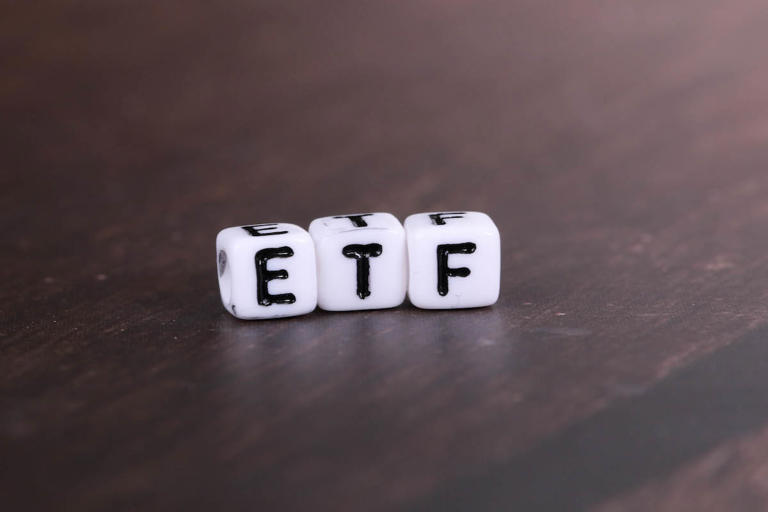The forthcoming launch of spot Ether exchange-traded funds (ETFs) in the United States has garnered significant attention, promising to provide institutional and retail investors regulated access to Ethereum’s native cryptocurrency, Ether. Initially anticipated for an early July debut, the launch has encountered delays as the U.S. Securities and Exchange Commission (SEC) extends its review process, underscoring the complexities and regulatory scrutiny associated with cryptocurrency-based financial products.
SEC Review and Approval Process
The SEC’s role in approving spot Ether ETFs involves a rigorous evaluation of the S-1 forms submitted by prospective issuers. These forms are critical as they outline essential details about the ETFs, including investment strategies, risks, financial disclosures, and operational frameworks. ETF analysts Eric Balchunas and James Seyffart from Bloomberg have reported that the SEC has provided feedback on these submissions and requested resubmissions by July 8, suggesting a meticulous review aimed at ensuring compliance with regulatory standards before granting approval for trading.
Nate Geraci, president of ETF Store, has observed that recent revisions to the S-1 filings were relatively minor, hinting at a potential clearance for trading within a timeframe of 14 to 21 days post-resubmission. However, uncertainties persist regarding the exact timing of the launch, with indications pointing towards a potential rollout around mid-to-late July or even extending into the summer months, contingent upon SEC approval.
Ethereum ETF Approval Process
The approval process for spot Ether ETFs consists of two primary phases:
- 19b-4 Forms Approval: Initially, issuers submitted 19b-4 forms outlining the operational and regulatory framework of the ETFs. The SEC approved these forms for eight ETF bidders on May 23, marking a crucial milestone towards potential ETF listings.
- S-1 Forms Review: The current phase involves a detailed review of the S-1 forms, which provide comprehensive disclosures necessary for investor understanding and regulatory compliance. Unlike 19b-4 forms, there is no strict deadline for the SEC’s review of S-1 filings, allowing flexibility in the approval process based on the complexity and completeness of the submissions.
Regulatory Landscape and Delays
SEC Chair Gary Gensler acknowledged on June 26 that progress was being made in the approval process for spot Ether ETFs. However, he cautioned about potential delays that could extend into September before these ETFs are listed on exchanges. This cautious approach reflects the SEC’s commitment to ensuring robust oversight and investor protection amidst the evolving landscape of digital asset investments.
Major Issuers and Listing Preparations
Several prominent financial firms are actively participating in the spot Ether ETF approval process, underscoring the industry’s readiness to provide regulated access to Ether and other cryptocurrencies through ETFs. Firms such as BlackRock, Fidelity, Grayscale, and VanEck have been instrumental in shaping the regulatory dialogue and preparing for the eventual launch of these ETFs. For instance, VanEck has taken proactive steps by filing 8-A forms in preparation for listing on exchanges, targeting a deadline around July 8. These preparations highlight the industry’s commitment to offering regulated avenues for cryptocurrency investments.
Implications and Market Expectations
The delay in launching spot Ether ETFs highlights the complexities of integrating cryptocurrency products into traditional financial frameworks. It underscores ongoing efforts to balance innovation with regulatory integrity, ensuring that ETF offerings meet stringent compliance standards for investor protection and market stability.
As stakeholders in the cryptocurrency community and financial markets await final decisions from the SEC, the outcome of these ETF approvals holds substantial implications for broader adoption and acceptance of digital assets within mainstream investment portfolios. The introduction of spot Ether ETFs is poised to enhance market liquidity, broaden investor participation, and offer diversified investment opportunities in the burgeoning cryptocurrency sector.
Broader Context of Cryptocurrency Integration
The regulatory scrutiny and delays surrounding spot Ether ETFs reflect broader challenges and opportunities in integrating digital assets into traditional financial systems. Cryptocurrencies, led by Bitcoin and Ethereum, have gained traction as alternative investments, driven by their decentralized nature, technological innovation, and potential for substantial returns.
However, regulatory authorities, including the SEC, have approached cryptocurrency products cautiously, citing concerns about market manipulation, investor protection, and compliance with existing financial regulations. The SEC’s deliberations on spot Ether ETFs exemplify its meticulous approach to evaluating new financial products, ensuring they adhere to established standards while facilitating innovation in digital asset markets.
Conclusion
In conclusion, while the extended review process for spot Ether ETFs presents challenges and uncertainties, it reflects the SEC’s commitment to thorough evaluation and regulatory oversight in the nascent realm of cryptocurrency ETFs. The eventual approval and launch of these ETFs are anticipated to mark a transformative milestone, bridging traditional finance with digital assets and shaping the future landscape of cryptocurrency investments on a regulated platform.
Investors, industry stakeholders, and regulatory bodies continue to navigate the evolving dynamics of digital assets, striving to strike a balance between innovation and regulatory compliance. The outcome of SEC approvals for spot Ether ETFs will likely influence market sentiment, investor confidence, and the broader adoption of cryptocurrencies within regulated investment frameworks.
As the regulatory landscape evolves and market conditions fluctuate, the introduction of spot Ether ETFs holds promise for expanding access to Ethereum and driving mainstream acceptance of digital assets as viable investment instruments in global financial markets.
